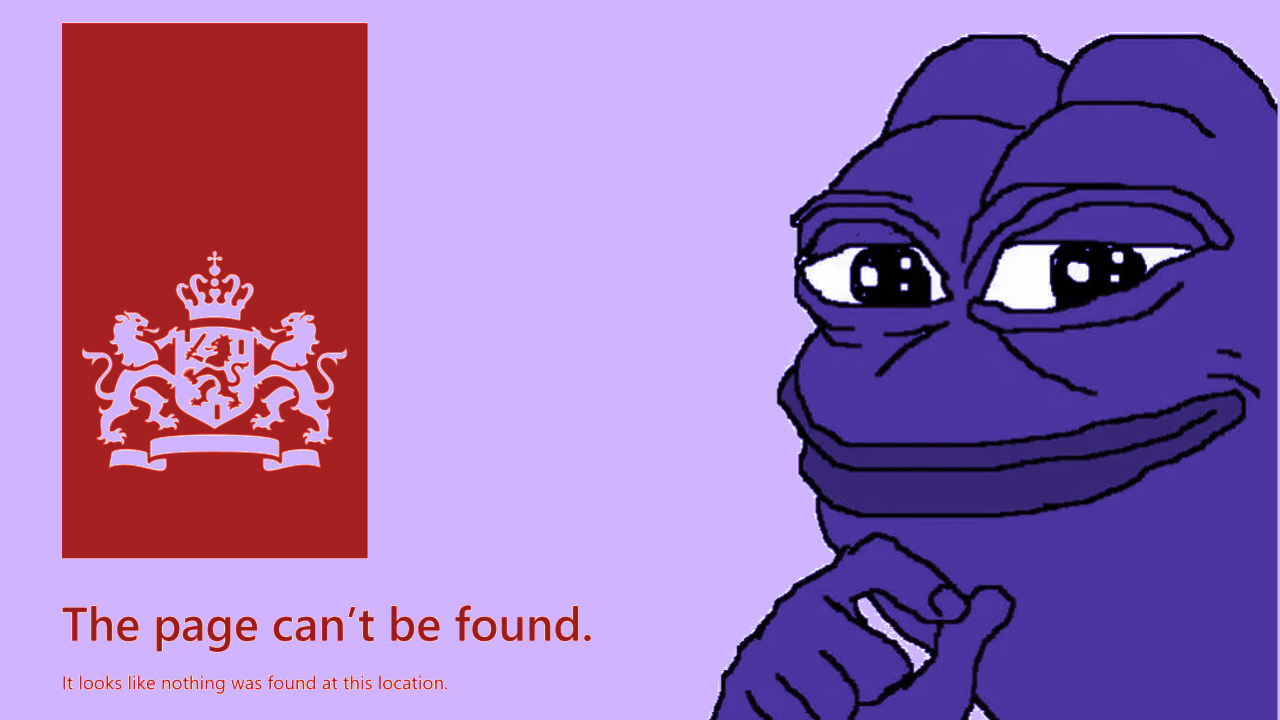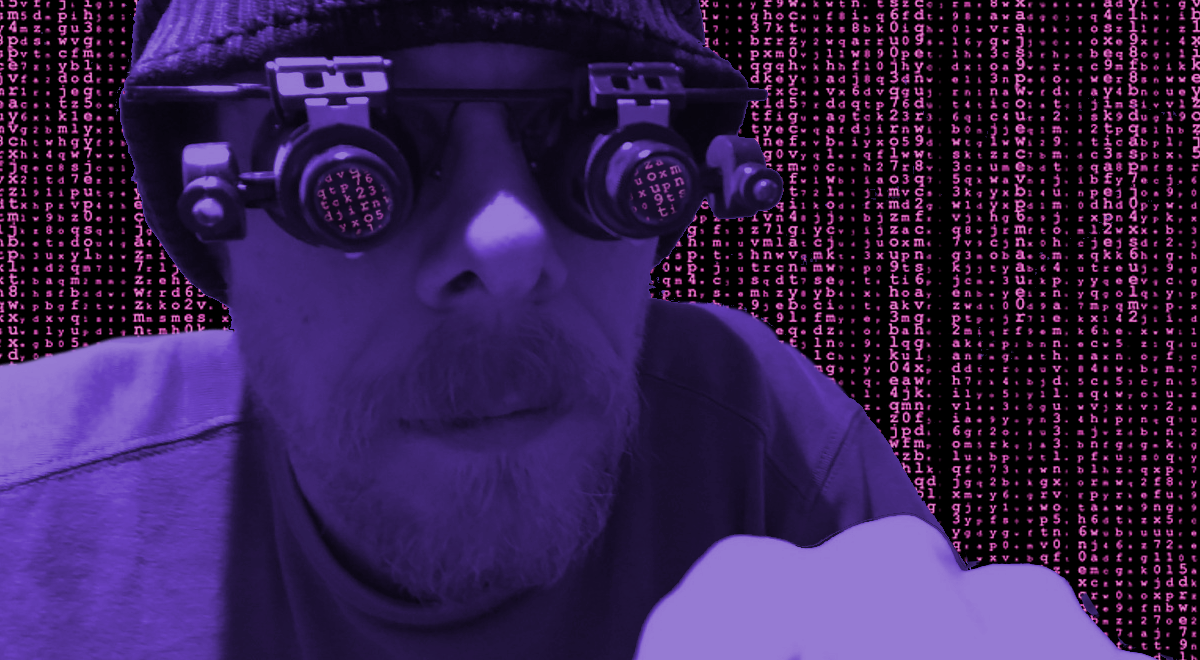We have seen the Dutch government employ behavioral-modifying measures throughout the pandemic, from hard to soft, some enforced with policing and fines, some on an advisory basis. We’ve seen shifting in these on a biweekly basis, from advice to explicit mandates, ‘new ideas’ implemented and enforced immediately, like our mask-mandate in public transport and shops wasn’t compulsory at first and got changed to an offense after a few months. Or the direct implementation of our, critically received, litigated, curfew laws, all to slow the spread of infections.
While in the final stages of publishing this piece the competition’s webite is suddenly completely emptied(!) Why would they scrub the website??

Oops! “this page cannot be found”; 404! 😮 😡
‘Behavioural Insights Netwerk‘, a Dutch government organization, and the Behavior Change Group, a private entity, have joined forces to come up with a challenge to get “well-founded, promising and innovative ideas” for behavior modification surrounding the ongoing pandemic. They have awarded prizes (not grants) to 9 winning promotional ideas ranging 3 topics; (footnotes1,2,3)
- Promoting staying home and getting tested
- Promoting vaccination against Covid-19
- Promoting mental health
Winners in each category get 15.000, 10.000 and 5.000 € respectively.. That’s 90.000 € of taxpayer money not counting setup costs for the competition itself(!) The ideas coming out of this competition range from sensible, predictable, to very very ‘shitty’. I’ll mention some good ideas and some of the bad. Going from one category to the next.(footnote4)
Promoting staying home and getting tested
There is only one sensible winning idea in this category and it got the 3rd place prize; An online checklist where symptomatic people can check if people with similar symptoms in their direct area tested positive recently. The other to ideas are ‘bad’ (in my opinion); 1st place went to a “Stay Home Challenge” where housemates of positive testcases get a ‘challenge’ to stay at home, possibly given incentives to do so(?). The runner up consists of an online campaign and quiz to make a personal or household quarantine plan, again the competition will likely be incentivized to boost interest.
Promoting vaccinations
This is the most egregious category, winners seem linearly bound to how intrusive ideas are! Least intrusive (3rd place) goes to promoting vaccine buddies, this means people are motivated to get vaccinated with friends, housemates (or family members?). Going from there it get pretty predictable; gathering non-factual-, non-sensible- stories from role-models for ‘narrative persuasion’! (it states this; I’m not making it up!) Finally first place goes to creating an ‘opt-out-registry‘ for vaccinations, akin to our existing opt-out for organ donor consent; a horrible system in my opinion! I’ll grant that this vaccine-focused version seemingly isn’t to force-inject people, but rather to hound them with messages reminding them to get their shot(s). I’m expecting this idea to mainly lead to a lot of paper-waste trying to stimulate behavior (compliance).
Promoting mental health
The final category is the field I do feel has been lacking in this health-scare; trying to positively influence the mental-health-pandemic (resulting from fear, the staunch measures and the general air of alarmism). That isn’t to say the ideas are all sound or desirable. First place winner’s idea is actually pretty good; intervening the mindset of older people (50+) together with artists and musicians, to boost a positive mindset. Last place ‘Happy at home’ is gearing towards the youth to question them and occupy them with assignments, also a good idea because our youth is reporting mental anguish through the lockdowns and loss of social- and physical-engagement. The rising stress-levels and reports of depressions in kids and households with children is worrying.
The first runner-up in this last category deserves it’s own paragraph because of the predictability that this stupid, wasteful, ‘original idea‘ would get traction; employing social media influencers.. (Barf!) ‘Influencers’ don’t do anything without getting paid, first off, secondly; they majorly push things through false advertisements already. They promote faulty products, or products that don’t comply with laws, services that don’t deliver, basically anything their ‘management’ can negotiate a price on!
Why would we even need to promote vaccinations? According to our deputy prime minister Hugo de Jonge our population’s vaccine preparedness mirrors ‘Korean levels‘ of willingness. Doesn’t that ‘factiod‘ mirror reality?
If this were the case it wouldn’t be the first time numbers were fudged this pandemic. Lately we’ve been inundated with news and opinion-pieces pushing the idea of ‘Covid-passports’. There is a clear campaign already going on that aims to boost the idea that getting your shots is a privilege, (bc) supplies are limited. Any talk of possible side effects and numerological fakery is actively combatted.
Wastefulness of this competition trend
The structuring of this competition is unusual; usually competitions grant startup capital for innovative ideas, so money goes towards implementing/operating a new initiative, towards the goal itself and only benefitting the persons behind the idea indirectly. Given the assignment required entries to project costs of starting-up and operating their ideas, this poses the question; Where is the rest of the monies needed coming from? What’s the complete operational budget of all of these plans?(footnote5)
This way of externalizing initiative doesn’t point at laziness or a lack of scope of the organizations behind the competition (imo In My Opinion). I doubt these ‘cognitive institutes’ lacked originality to come up with similar ideas themselves, rather I believe they theorized that ‘crowd-sourcing‘ these types of ideas grants some sort of ‘legitimization‘ and shields them from direct critique themselves.(!) Furthermore this structuring and way of rewarding people lump sums of free-to-spend-cash, leads me to believe that the ‘cognitive experts‘ themselves felt the normal way of ‘incentivizing’ (rewarding) wouldn’t motivate enough response, which would have dampened the plurality of ideas for them to pick and choose from.(!)
The result is that these scientists and our government received a ‘plethora’ of ideas to choose from and created the air of legitimacy to spend further money on these initiatives! Theses ideas aren’t very new or unique, just very critically received before; when some of them were coined earlier in the pandemic! Some of these ‘behavior modifying measures’ were indeed lacking, like improving mental health, a field that has seen budgetary cuts in years leading up to the pandemic.
Some existing measures, like the mandate to wear symbolic non-medical-masks, to follow arbitrary non-scientifically based 1.5-meter distancing rules and some of these ideas coming out of this competition; All point at a perception of a ‘control crisis’. This new wave of initiatives was to be expected, there are official documents hinting at a scala of possible avenues, ranging from soft ‘nudging’ to pushing as a step down from forcing things through, by mandates, laws, fines, etc. All towards boosting vaccination-compliance.(footnote6)
So we’ve seen other earlier ideas start off as advisory to later become law, I’m not expecting these to, these are meant to merely boost some aspects of compliance and to give the public a sense sciences are open to outside input and that no stones are left unturned. And, like I ventured; to externalize the initiatives and legitimize further budgets towards these.
Some of these plans actually state outright that they mean to manipulate emotions and behavior, regardless of sensibility or facts. Others open avenues to further incentivize compliance and still others to reward Z-list-celebrities. Like I said, some of these ideas are actually okay in my eyes, like getting artists involved to quell some mental anguishes; I’m not against these, but do greatly question the total monetary-costs of this competition and all the plans it promotes..
It’s very odd..
It’s odd that only a little more than a month after declaring the winners of this competition the website seems completely scrubbed. I have found some snapshots of the pages in the ‘web.archive.org’, but this comp was paid for by taxpayer-money and therefore data may not be erased, by law(!) I have asked for a reply on this from both organizers and through the email I found in the archive.. I will update if I get a reaction. Suspect behavior no?
footnotes:
note1: About Behavioural Insights Netwerk Nederland here.
note2: About Behavior Change Group here.
note3: About the Covid Behavioural Challenge here.
note4: (deadlink: offered for reference) Winners of Covid Behavioural Challenge here.
note5: Rules Covid Behavioural Challenge here.
note6: Healthboard’s “Ethical and legal considerations of Covid-19-Vaccination” (pdf) here.
Behave Yourself

